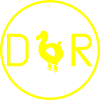1
2
3
4
5
6
7
8
9
10
11
12
13
14
15
16
17
18
19
20
21
22
23
24
25
26
27
28
29
30
31
32
33
34
35
36
37
38
39
40
41
42
43
44
45
46
47
48
49
50
51
52
53
54
55
56
57
58
59
60
61
62
63
64
65
66
67
68
69
70
71
72
73
74
75
76
77
78
79
80
|
/*
* Copyright (C) 2023 Arseniy Movshev <dodoradio@outlook.com>
* This file is part of sensorlogd, a sensor logger for the AsteroidOS smartwatch OS.
*
* sensorlogd is free software: you can redistribute it and/or modify it under the terms of the GNU General Public License as published by the Free Software Foundation, either version 3 of the License, or (at your option) any later version.
* sensorlogd is distributed in the hope that it will be useful, but WITHOUT ANY WARRANTY; without even the implied warranty of MERCHANTABILITY or FITNESS FOR A PARTICULAR PURPOSE. See the GNU General Public License for more details.
*
* You should have received a copy of the GNU General Public License along with this program. If not, see <https://www.gnu.org/licenses/>.
*/
#include <QDateTime>
#include <QDate>
#include <QTime>
#include <QTimer>
#include <QtSensors/QStepCounterSensor>
#include <QDebug>
#include <QString>
#include "../logger.h"
#include "stepCounter.h"
StepCounterPlugin::StepCounterPlugin(QObject *parent, int initInterval) :
QObject(parent){
interval = initInterval;
stepcounterSensor = new QStepCounterSensor(this);
stepcounterSensor->start();
qDebug() << "step counter sensor is enabled. interval is (ms) " << interval;
recordIntervalTimer = new QTimer(this);
connect(recordIntervalTimer,SIGNAL(timeout()),this,SLOT(triggerRecording()));
recordIntervalTimer->setSingleShot(true);
recordIntervalTimer->start(interval);
QDateTime currDateTime = QDateTime::currentDateTime();
setupFilePath(sensorPathPrefix);
if (dayFileExists(sensorPathPrefix)) {
QStringList lastLineData = fileGetPrevRecord(sensorPathPrefix);
lastRecordTime = QDateTime::fromSecsSinceEpoch(lastLineData[0].toInt());
if (stepcounterSensor->reading()->steps() == 0) {
stepsOffset = -(lastLineData[1].toInt());
} else {
stepsOffset = - stepcounterSensor->reading()->steps() + (lastLineData[1].toInt());
}
} else {
//if it's a new day, we 'reset' the counter. this is crude - we should really check for a boot here, since certain machines have capability of counting steps when powered down.
stepsOffset = stepcounterSensor->reading()->steps();
}
}
void StepCounterPlugin::timeUpdate() {
QDateTime currDateTime = QDateTime::currentDateTime();
uint elapsed = currDateTime.toMSecsSinceEpoch() - lastRecordTime.toMSecsSinceEpoch();
qDebug() << "time until next steps recording" << recordIntervalTimer->remainingTime() << " elapsed = " << elapsed << " lastRecordTime " << lastRecordTime.toMSecsSinceEpoch();
if (elapsed > interval) { //if too much time has passed, reset the timer and record
triggerRecording();
} else { //otherwise, restart the timer and compensate for time spent in suspend
recordIntervalTimer->start(interval - elapsed);
}
}
void StepCounterPlugin::triggerRecording() {
qDebug() << "stepcounter interval recording";
if (lastRecordTime.date() < QDate::currentDate()) {
int steps = stepcounterSensor->reading()->steps();
fileAddRecord(sensorPathPrefix,QString::number(steps - stepsOffset),QDateTime(QDate::currentDate().addDays(-1),QTime(23,59,59))); // this writes the current step count to the last second of the previous day
stepcounterSensor->reading()->setSteps(0); // and then we reset the step counter
stepsOffset = 0; // and, since the step counter has been reset, there's no need for an offset any more
qDebug() << "date change detected; recorded " << steps << " to previous day and reset step counter hw";
} else {
int steps = stepcounterSensor->reading()->steps();
qDebug() << QDateTime::currentDateTime().toString("hh:mm:ss") << " : " << steps << stepcounterSensor->isActive();
//we probably ought to do some error checking here
fileAddRecord(sensorPathPrefix,QString::number(steps - stepsOffset));
}
lastRecordTime = QDateTime::currentDateTime();
}
|
